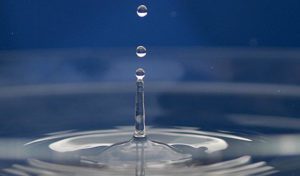Saving Water with Compostables
 With the water crisis in Cape Town, we have been receiving requests from clients for disposable plates and cutlery as they look for ways to reduce the amount of water they use in daily operations. There is no simple solution in this situation so we wanted to break down the facts so that we know you are making informed, great choices.
With the water crisis in Cape Town, we have been receiving requests from clients for disposable plates and cutlery as they look for ways to reduce the amount of water they use in daily operations. There is no simple solution in this situation so we wanted to break down the facts so that we know you are making informed, great choices.Virtual Water
Importing Virtual Water
When we import products, we import the virtual water too. So in this instance, our imported products do represent a local water saving but not necessarily an overall water saving.
This includes
- all our bagasse products, for example, the plates and bowls,
- our bioplastic cutlery
- wooden cutlery,
- wooden cocktail accessories
- clear bioplastic cups
Saving Local Water and the Economy
For our locally produced products we can’t assume that using them is necessarily ‘saving’ water. It’s more complicated than that. It depends on where the factory is located and how much water their production process needs.
While our locally manufactured products do use local water, they do also support the local economy and create much needed jobs. (Water is essential, but so are jobs!) Local manufacturing plants are under more pressure than anywhere else in the world to find ways to improve their water efficiency, for example, by recycling grey water – so let’s keep supporting them. If people are going to have to queue for water, we’d like them to still have a job. We need to save water and maintain our economy at the same time.
Low Virtual Water Materials
Our paper products are made from wood pulp sourced from trees that can often survive on rainfall alone (unless they’re very young) because their roots are deep enough to reach the water table.
Long Term Sustainability
The major benefit of disposables made form plants is that they biodegrade and in the right conditions they compost. The bagasse and the wood are even home compostable. Times like these call for this kind of sustainability thinking – where we are creating closed loop systems that feed back to the Earth. It’s not ideal that disposables are being considered to help save water and we urge our customers who are looking to disposable items as a water crisis solution to use this opportunity to adopt some long term sustainability practises.
